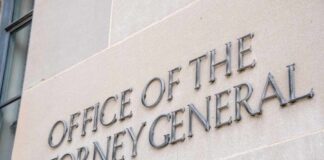
Sen. Ron Wyden (D-OR) has expressed “serious concerns about the legality” of a Biden White House surveillance program. He recently sent a letter alerting the U.S. Attorney General about his concerns.
Wired Magazine obtained a copy of the letter. The tech outlet reported the program — named “Data Analytical Services” (DAS) — collects the phone records of thousands of U.S. citizens not suspected of committing any crime.
According to Wired, “the program targets not only those in direct phone contact with a criminal suspect but anyone with whom those individuals have been in contact as well.”
The White House justifies the program by calling this method “chain analysis.”
“on the heels of a bombshell Wired report, in which Sen. Ron Wyden (D-OR) revealed that a surveillance program, known as Data Analytical Services (DAS), has for more than a decade allowed law enforcement agencies to collect American phone call data, including those not suspected… https://t.co/wAal7iE0ug pic.twitter.com/FRaGK2lxro
— Conservatism Prevents Tyranny (@SaveLibertyUS) November 22, 2023
The Obama-era program has been in operation for ten years. During that time, the White House has allotted $6 million to fund its operations. The program was formerly called, “Hemisphere,” but the Biden White House changed it to its current, more mundane program title.
DAS connects police in a public-private partnership with telecom giant AT&T. Since its inception, DAS has been used by local, state, and federal law enforcement. It can trace the phone records of any calls placed, routed or received using infrastructure owned by AT&T.
Most phone service providers keep records for two years, but Wired reports that AT&T holds on to phone records for at least 10 years, and in some cases for decades.
I just contacted the White House Office of National Drug Control Policy (ONDCP) Director in response to disturbing new info related to a mass surveillance program called The Hemisphere Project.
These programs are all about CONTROL over Americans.https://t.co/qOA7CK1zZz
— Rep Andy Biggs (@RepAndyBiggsAZ) November 21, 2023
Sen. Wyden posted a copy of the letter to Attorney General Merrick Garland on his Senate.gov web page Monday. Wyden, who serves on the Senate Intelligence Committee, called the scale of the program “stunning in its scope.”
Wyden also said the White House’s under-the-table method of funding the program shields it from oversight. He said this enables “the program to skip an otherwise mandatory federal privacy review.”
If DAS were funded by a federal agency, Wyden notes, it would be subject “to a mandatory Privacy Impact Assessment conducted by the Department of Justice.”
Noting that DAS is not a classified program, Wyden concludes the letter by urging the DOJ to release more information about the program to the public. He said the public interest deserves an “informed debate” about its merits and legality.


















